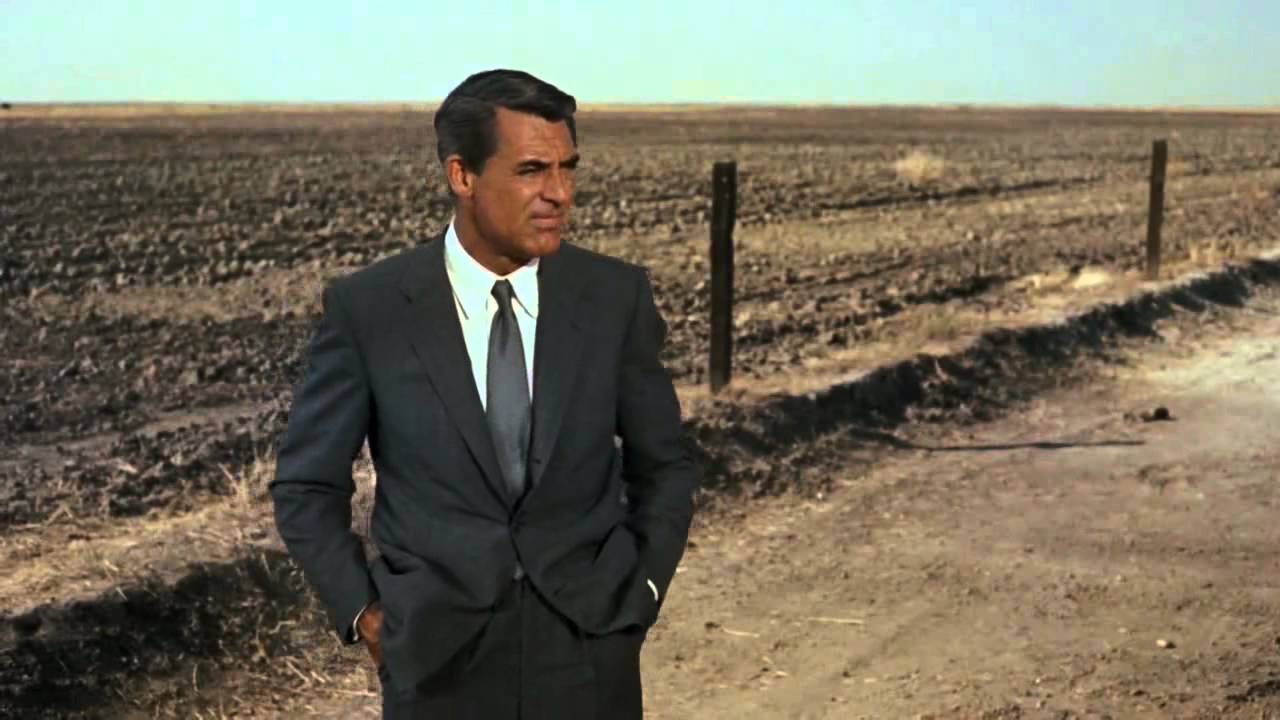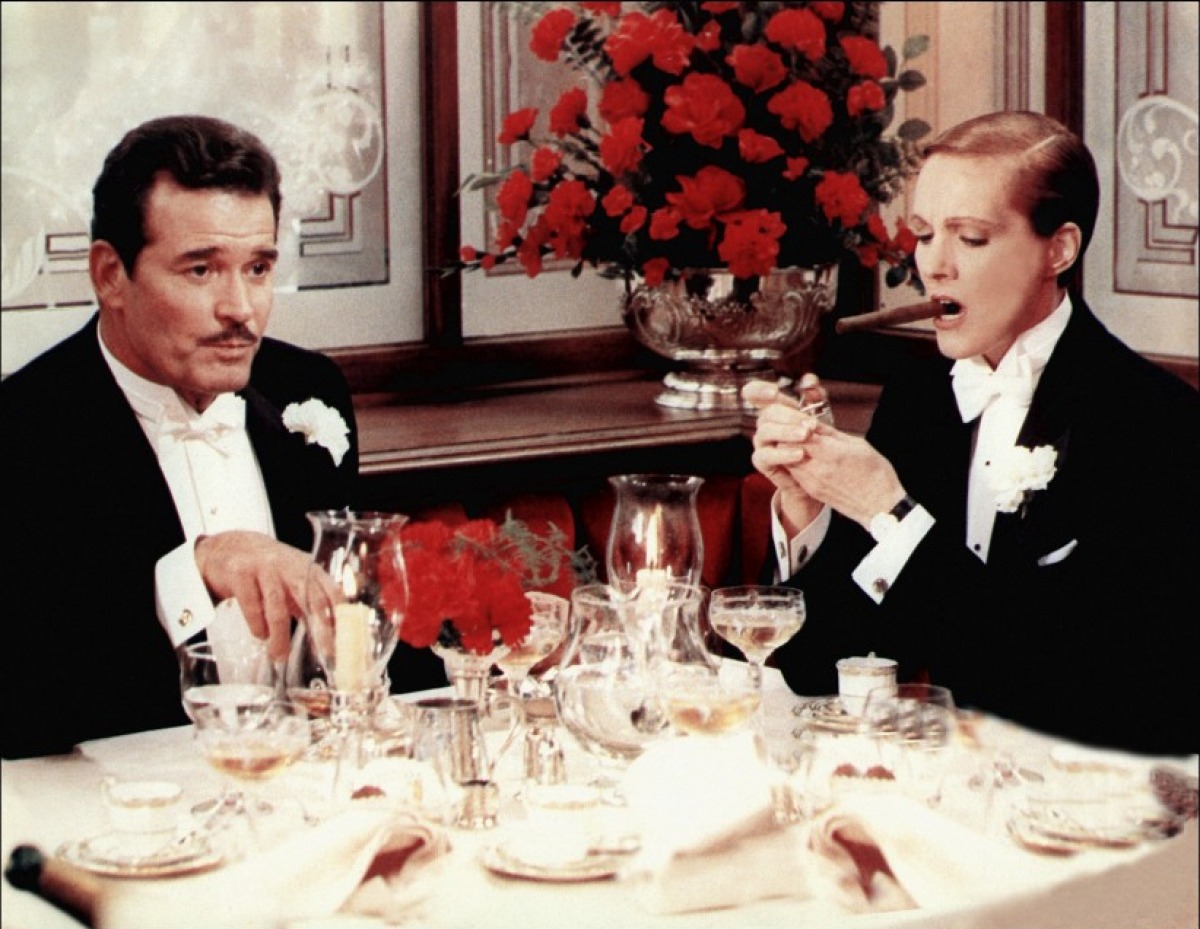
If you survived English class in high school with a well-established chagrin for the works of William Shakespeare, you may be surprised to learn that modern filmmakers often turn to the works of Shakespeare as reliable inspiration for stories that translate well onto the big screen. It turns out that the stories that made people laugh, or cry, from the stage in the 16th century, are still able to stir men’s souls today when presented on film.
In this article, we pull back the curtain on some of Shakespeare’s most iconic works to show you how modern filmmakers used the stories of the past to create films you didn’t know were based on plays by William Shakespeare.
1. North by Northwest (1959) Hitchcock’s take on Hamlet

“I am but mad north-north-west. When the wind is southerly I know a hawk from a handsaw.” The character Hamlet speaks this line in Act II Scene 2 of Shakespeare’s play by the same. As Hamlet’s college pals show up for the play at Elsinore Castle, Hamlet suggests to Rosencrantz and Guildenstern that his madness is only an act while he plots his uncle’s murder. Hamlet is casting doubt in the minds of his friends with this line; he simultaneously creates a question of reality for the audience. The entire production of Hamlet hinges on the question of Hamlet’s sanity. Has he really gone mad from grief, or is he using everyone’s presumption of his insanity in order to plant a strategic trap? This theme of questioning reality, as well as the main character’s grip upon that reality, is a running theme of Hitchcock’s suspense thriller from 1959.
Long considered one of Hitchcock’s canonical films, this film sees Cary Grant chased all over the country, stirred up into harried frenzy of suspense and uncertainty. Hitchcock himself was quoted in 1963 describing the film’s title as purposeful because “there is no north by northwest on the compass.” Just like Hamlet, Hitchcock’s Roger Thornhill (Cary Grant) heads in a direction that causes the audience to question what’s real. While this film is not an adaptation of Shakespeare’s Hamlet, many critics have credited this film as Hitchcock’s take on Hamlet.
2. Victor Victoria (1982) not a strict adaptation but consistent parallels with Shakespeare’s Twelfth Night

In this 1982 musical comedy, Julie Andrews steps out of her Mary Poppins’ hat and into the role of Victoria Grant, a woman who pretends to be a man pretending to be a woman. The titular line in the movie comes from the moment when Toddy, Richard, and Victoria hatch a wild idea to create Count Victor Grazinksy (Victoria Grant in disguise), as Europe’s greatest female impersonator. “It will work”, Toddy assures Victoria. “It will not!” says Victoria. They’ll never accept a woman pretending to be a man pretending to be a woman! – “They’ll know he’s a phony!” “Exactly”, says Toddy. The film is intended to be comical, and succeeds brilliantly, but is based on the same foundation as Shakespeare’s Twelfth Night.
In Shakespeare’s play, we see the character Viola disguise herself as a man to work in the house of Duke Orsino. While there, she falls in love with Duke Orsino and comedy ensues because Orsino believes her to be a man. It gets worse for Viola when another woman falls in love with the disguised Viola, also believing Viola is the man, Cesario, that she is dressed up and pretending to be. The play Twelfth Night is one of Shakespeare’s most successful, having the same comedic storyline of Victor/Victoria, so much so, that as you watch Julia Andrews don her top hat and tails as Count Victor you can almost hear Shakespeare saying, “I told you it will work!”
3. Strange Brew (1983), loosely based on Shakespeare’s Hamlet

This 1983 cult film is a modern adaptation of Shakespeare’s Hamlet. Shakespeare’s play sees Hamlet return from college for the funeral of his recently deceased father and upon arrival finds his mother remarried to his uncle (His father’s brother), and Hamlet believes there is foul play. Hamlet’s dead father returns from the grave as a ghost to warn Hamlet of the murder and Hamlet, while faking insanity, lures the culprits into a trap. Hamlet stages a play that will prove the evil uncle and his cohorts plotted to kill Hamlet’s father. Strange Brew takes Shakespeare’s tragic storyline and turns it into a farcical comedy directed, written, and starred in by Rick Moranis and Dave Thomas.
In the Moranis-Thomas version of Hamlet, the evil murderous uncle is now a Brewmeister at a local beer brewery, whose tunnels underneath the factory connect to an insane asylum. Fighting illicit drugs and beer-as-brain-control measures at the factory, the heroes manage to steal a floppy disk (pre-Apple iPhones here, ok?) that contains a video proving the murder.
Complete with the return of a fatherly ghost who warns the heroes of danger, this film continues the adaptation by setting Elsinore Castle as Elsinore Brewing, and bad guys stuff people into beer kegs instead of a butt of malmsey. That small element is notable since one key aspect of Shakespeare’s Hamlet storyline is the unfortunate George Duke of Clarence who ends up stuffed in a barrel of malmsey, a kind of 16th century alcoholic beverage. Following the direct parallels, there’s nonstop absurd humor all way to the happy ending. Unlike Shakespeare’s version of Hamlet, not everyone dies at the end of this film, but they are all covered in beer.
4. Ex Machina (2014) re-interpretation of The Tempest

Better called an interpretation of Shakespeare’s play The Tempest, instead of an adaptation, this film takes some structure and format from Shakespeare’s play and expands it for a very modern world. The film follows the idea that a computer programmer has to spend a week with a humanoid robot as an application of the Turing test (A test to see if a computer can exhibit human enough features that you forget they are computers.) The initial plan to run the Turing test on the robot, Ava, goes awry when the computer programmer, Caleb, falls in love with the robot.
Like the owner of the robots in this film, the powerful wizard Prospero in Shakespeare’s The Tempest, finds his power based in extreme knowledge, only Nathan finds his knowledge and subsequent power from computer technology. Both wizard figures utilize the help of their servants to apply magic to concoct the version of reality they most prefer by manipulating the lives of those around them.
The character of Nathan in Ex Machina functions as the Prospero character, only instead of being a magical wizard, Nathan is fueled by computers whose ability is so profound, it works like magic. The robot Nathan creates, Ava, stands in for Shakespeare’s Miranda, the daughter of Prospero, who in the play was kept from the outside world. Similarly, Ava is ignorant of any experience outside of Nathan’s control. Just like in the play, an outsider lured onto the island by Prospero and falls in love with the daughter. The plotting of the masterful magician pulling all the strings complicates their love story.
5. Mean Girls (2004) contested adaptation of Julius Caesar

Mean Girls is a retelling of Shakespeare’s Julius Caesar set in a 21st century high school. Caesar plays a consistent role in the plot of the film. At one point Gretchen says, “Why should Caesar get to stomp around like a giant while the rest of us try not to get smushed under his big feet?”
Regina parallels the role of Julius Caesar as the leader everyone wants to dismantle. Lindsay Lohan’s character, Cady Heron, makes a nice parallel to Shakespeare’s Brutus, as the intelligent person who is deceived into betraying Caesar. When Gretchen says “Brutus is just as cute as Caesar. Okay, Brutus is just as smart as Caesar. People totally like Brutus just as much as they like Caesar” She could have been standing on the floor of a fabricated Roman Senate inside a 16th century playhouse to speak those lines, since having a side character pitch a fit on stage that functions as humor in the moment but ultimately representative of the plot as a whole is a direct take from Shakespeare.
Obviously, as Regina’s right hand man, Gretchen thinks of herself as the Brutus to Regina’s Caesar. In Shakespeare’s Julius Caesar, Cassius is responsible for convincing Brutus it is in the best interest of the Republic if Caesar dies. In the film, Janis (for her own gain) convinces Cady to turn on Regina.